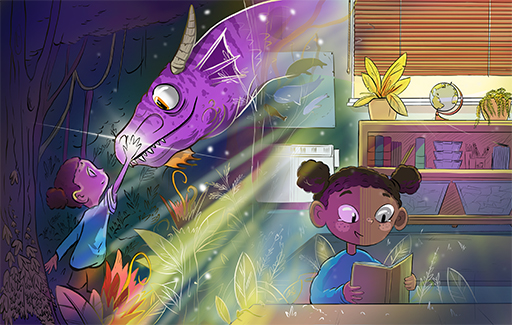Session 3: The power of narrative
Introduction
Storytelling is an age-old human tradition; whether told orally, written by hand or in print, or enacted on stage or screen, our innate desire to create and experience stories has endured for millennia. Every culture and every religion has traditional stories that are passed along the generations to entertain, educate and inform, to preserve beliefs and collective identity or to instil moral values.

Yet narrative is such an integral part of everyday life that its significance and value at a personal, societal and global level tends to go unnoticed. This session explores what it is about stories that makes them so addictive and why narrative and narrative texts are so powerful in children’s development.
By the end of this session, you will have:
- developed a detailed understanding of the role of narrative in understanding the world
- considered how single stories can perpetuate cultural stereotyping
- started to recognise implicit sexism, racism, ablism and heteronormativity in children’s literature
- explored how to draw on literature to promote children’s empathy and sensitively address difficult subjects.
